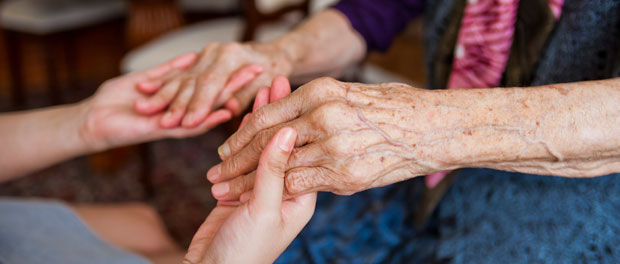
Little is written about the Ignatian-Jesuit characteristic of cura personalis, which is Latin for “care for the whole person.” Cura personalis comes down to the respect for all that makes up each individual. As St. Paul reminds us, “the body is one and has many members, and all the members of the body, though many, are one body…” (1 Corinthians 12:12)
Our talents, abilities, physical attributes, personalities, desires, hearts, faith, and minds are all equally worthy of care and attention. The term cura personalis is typically heard in Jesuit universities and institutions. Why? Because their mission and purpose goes beyond the intellect of the head. When I worked at Georgetown University Hospital, cura personalis was a reminder to staff and patients that the hospital’s mission included not just the health of the body but also the health of the entire person.
In the same way, our Christian faith ought to involve not just head but heart, not just soul but body. Spiritual exercises are as important as physical exercises. Learning is as important as a good diet. We pray, learn, and eat healthy as ways to glorify God and care for our entire selves. Sadly, there is often great disregard for our minds and bodies, which are gifts from God. Obesity is an epidemic, religious involvement is minimal, and school dropout rates are too high.
St. Ignatius once wrote a letter to a Jesuit ordering him to take better care of his health after learning that he was not eating properly; his ministry was taking away from the proper care of his body. Ignatius wrote, “For the next three months, from now until September, you are to do no preaching, but are to look after your health.” Ignatius implored him to follow doctor’s advice under the vow of obedience.
The Benedictines have a deep spirituality of work and prayer. They know that the proper balance between work and prayer is necessary in the spiritual life. You cannot healthily have one without the other. In turn, they recognize that body and soul are both gifts from God.
Originally a call for the kind of care Jesuit superiors were to give to their subordinates, cura personalis is a call for you and me to love ourselves and others: the entire person, the entire gift of life from God given to us.

Thank you for putting me on the right track. I always thought “body” was talking about the Church and members was the congregation. Bless you. XO
What’s easy to do is also what’s not easy to do.
As freshly baked summer fruit tarts sit in the kitchen upstairs, beckoning me to consume; I will enjoy only a modest portion and leave some on the plate. I’m on a journey.
I know perfection today does not mean complete denial, but I choose a new direction for my next dietary and physical fitness steps–smaller portions and give up time wasters.
I’m participating in at least two new communities: one to address a personal spiritual awakening for dietary restraint, and another group of practitioners to strengthen my physical fitness quest.
This is a good reminder to balance our body and soul. Regarding diet, we should feed our bodies well with nutrients than lots of calories. Healthy eating, healthy living and practice good lifestyle. If this is done, I think carrying out God’s work will be manageable.
Thank you for sharing!
I must say i did very well on my retreat with eating only one meal a day and trying to avoid the sweets and too much caffeiene, but upon returning home i have had to practice more discipline because everyting is so readily available. I,.too have to be careful because of the medication i am on and my body’s weakness after taking these meds. Thank you for this article and God bless you, br jeffrey
Very nice. Thank you.
Terrific idea. I wish I could calm down enough to try it.
God has given us His created natural world to use! Not to exploit, but to walk in harmony with. It offers us the ability to nourish and heal our bodies, to explore our minds and participate in His beautiful creation around us. To see with our hearts and feel with our eyes. Soli Del Gloria!
Thanks for sharing this. God Bless you.
Thank you so much for sharing this. I wrote a paper recently on this subject, but I had no idea it was called “cura personalis”, nor seen as characteristically ‘Ignatian’!
This reflection gave a fond memory for me when I was still a young practical trainee in one of our schools. Being young and full of spirit and idealism, I was always up on my toes, at everyone’s beck and call until I got sick and then the community doctor has requested our Rector that I be given extra helpings at the dinner table to add to my nourishment. It was the start of Lent and as a community, we took as a Lenten sacrifice to skip snacks and desserts. I fondly remember how our Rector has ordered me via the vow of obedience that I am exempted from doing fasting and abstinence from our community Lenten vow. I can see the logic now that I have gotten older.